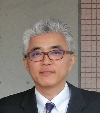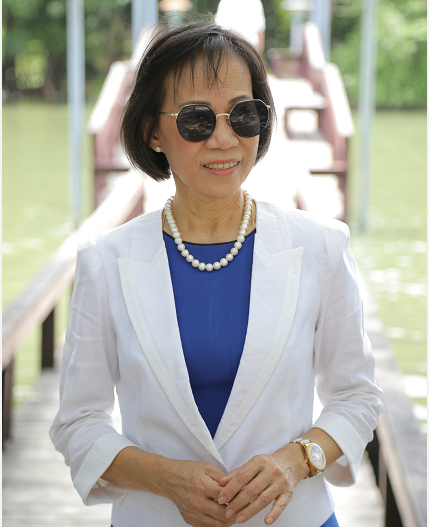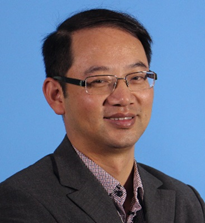Keynote Speakers of ICLLA 2021

Prof. Tomokazu Nakayama, Jissen Women’s University, Japan
T. Nakayama A. was born and raised in Tokyo, Japan. Nakayama earned a bachelor degree in English Literature and Linguistics from Obirin University in 1991, and MA in TESOL at Teachers’ College Columbia University in 2001 and Ph.D. at Hiroshima University in 2013. He is specialized in learning science. His current research interests are English as an International Language (EIL) and development of new learning methods to promote proficiency of EIL learners. He developed VA shadowing method to improve Japanese EIL learners’ listening skills and the book on its mechanism will be released this year. Now he and his colleagues are developing the new method called Instant Translation method to promote proficiency of Japanese EIL learners. He is currently an associate professor at Jissen Women’s University in Tokyo and teaches English and English teacher training courses.
Topic: What is L1+Approach?-Its Mechanisms and Implications for Pedagogy
Abstract: L1+ approach is a novel methodology for English language teaching (ELT), which attempts to maximize the benefit of L1 knowledge for L2 language learning. This presentation attempts to verify the mechanisms and efficacy of the L1+ approach by discussing the concept of L1+ language, which consists of L1 language in the word-order of the target language, and critically comparing it with other conventional approaches of teaching English grammar in Japan. The analysis suggests that the L1+ approach has a prospect of better facilitating sentence productions, compared to other conventional Japanese approaches.

Prof. Budsaba Kanoksilapatham, Silpakorn University, Thailand
Budsaba Kanoksilapatham is currently a professor of English with the Faculty of Management Science, Silpakorn University.She completed the bachelor’s degree in English(Hons.)at the Faculty of Arts, Chulalongkorn University.She received the master’s degree in linguistics and EFL from Southern Illinois University at Carbondale and the Ph.D.degree in linguistics with a concentration in applied linguistics from Georgetown University, USA.Her research interests include discourse analysis, sociolinguistics, phonetics, and language teaching.Her most recent books are Pronunciation in Action and English Sociolinguistics at Work.Her research articles were published in international journals including English for Specific Purposes and The IEEE Transactions on Professional Communication.
Topic: Disciplinary Backgrounds and Motivation in Learning English
Abstract: The increasing global and local demands to improve citizens’ English proficiency have augmented the significance of English education across the entire paradigm. Meanwhile, motivation has been endorsed as one of the pivotal and psychological driving forces that propels the success of language learning. This study represents a large-scale motivational study, exploring the role of motivation in learning English among Thai undergraduate students, studying in the disciplines of the sciences and humanities at eight public universities across Thailand. Based on the frameworks by Gardner (1985; 2004) and Dörnyei (2010) and a number of modifications made on their corresponding questionnaires, a hybrid questionnaire eliciting quantitative data was specifically developed to accommodate the context of English language teaching and learning in Thailand. Additionally, a semi-structured interview form was devised to collect qualitative data, complementing the quantitative data. Quantitative data analysis revealed that these two cohorts of students were significantly different as far as the nature of their motivation is concerned. Scrutiny of the interview data demonstrates that both the sciences and humanities students had a common utilitarian goal of employment and professional advancement. However, the humanities students interestingly expressed their aspirations to extend the use of English as a tool to enlarge their cultural repertoire. In light of these results, a number of generalizations could be made, including practical implications for teaching and managing English classrooms of Thai undergraduate students from diverse disciplinary backgrounds.
Plenary Speaker

Assoc. Prof. Lixun Wang, The Education University of Hong Kong, China
Dr. Wang Lixun is Associate Dean of the Faculty of Humanities and Associate Professor in the Department of Linguistics and Modern Language Studies at the Education University of Hong Kong. He has published widely in areas such as corpus linguistics, computer-assisted language learning, multilingual education, and English-Chinese translation studies, in reputable journals such as System, Language Learning and Technology, Computer-Assisted Language Learning, and International Journal of Bilingual Education and Bilingualism. He is the author of Introduction to Language Studies (2011) and co-author of Academic Writing in Language and Education Programmes (2011), Trilingual Education in Hong Kong Primary Schools (2019), and Identity, Motivation, and Multilingual Education in Asian Contexts (2020). In 2019, he and his colleagues won Silver Medal at the 47th International Exhibition of Inventions Geneva (Project title: Educational Linguistics 2.0 – The use of Corpora in Language Teaching). In 2020, he and his colleagues won 2020 Esperanto "Access to Language Education” Award organized by CALICO, the Esperantic Studies Foundation, and Lernu.net in the USA.
Topic: Multilingual Education: The Case of Hong Kong
Abstract: As the world is becoming a global
village, and people living in this village speak many
different languages, multilingual education has
attracted increasing attention in recent years. Hong
Kong is a good example to showcase the ‘global village’
concept: it is an international city where the East
meets the West. As a multilingual society, it has three
principal languages: Cantonese (the native language of
95% of the local people), English (a dominant language
in sectors such as higher education, finance, and law)
and Putonghua (national language of China). Since the
1997 Handover, the Hong Kong government has adopted the
‘biliterate and trilingual’ language policy, hoping that
Hong Kong citizens will become biliterate in written
Chinese and English, and trilingual in Cantonese,
Putonghua and spoken English. To achieve such a goal,
Cantonese, Putonghua and English have all been adopted
as ‘Medium of Instruction’ in different subjects in Hong
Kong schools. However, the Hong Kong government has not
provided clear-cut guidelines on how trilingual
education should be implemented in schools. In order to
investigate how Hong Kong schools adopt the ‘biliterate
and trilingual’ language policy and implement trilingual
education, we carried out a series of studies over the
past few years using both quantitative and qualitative
research methods, such as large scale questionnaire
surveys, interviews, class discourse analysis, and
teachers’ self-reflection. Findings suggest that
different trilingual education models have been adopted
by different schools based on different rationales, with
varying degrees of success. The Medium of Instruction
(MoI) issue, which is somewhat controversial, will be
discussed in detail in this presentation. Based on the
research findings, some recommendations will be made on
where we go from here. We hope that our studies can shed
some light on how multilingual education can be
implemented effectively in Hong Kong, and indeed, around
the world.
Invited Speaker
Assoc. Prof. Yulianeta, Universitas Pendidikan
Indonesia, Indonesia
Dr.
Yulianeta is an associate professor in the Department of Indonesian Language and Literature Education at the Indonesia University of Education (Universitas Pendidikan Indonesia), Bandung. Her interests are in the study of literature, culture, as well as women's studies. She is also passionate about teaching Indonesian language for foreigners. Her works have been published in several journals and books. She has written seven comics inspired by manuscripts and then adapted them into animated movies. Recently, she has taught Indonesian language at SOAS University of London and has been a visiting lecturer at Nanzan University, Japan.
